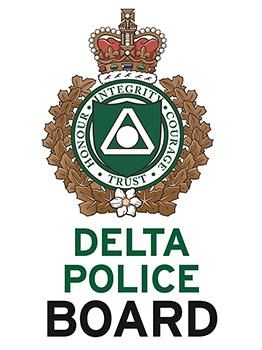The list of what went wrong in policing, or what now has to be put right, that led to the massacre of 22 Nova Scotians in April 2020, is long, 130 recommendations, in the Mass Casualty Commission Final Report (https://masscasualtycommission.ca/final-report/).
But in the Delta Police Department, many of the suggested actions are already in place, although there are 10 which could generally apply to police forces, and to which the local force is responding, the Delta Police Board heard Nov. 15.
A gunman, driving a car outfitted like an RCMP cruiser, shot and killed 22 people over the course of 13 hours in Portapique, N.S., April 18/19, 2020.
“Even though it was Nova Scotia and it was the other side of the country, we wanted to be certain that there aren’t things that we could learn from that,” said Volker Helmuth, manager for legal and risk management.
Delta police wanted to be certain that the lessons and recommendations were considered, “because they are of value to every police department across the country,” he added.
One of the 10 general recommendations is for police, government and the community to develop public awareness campaigns about coercive control in relationships.
But according to the police board report, the Canadian Association of Chiefs of Police already is pressing to change the Criminal Code, and DPD already use social media to create awareness. However, the department will increase communications about intimate partner violence and coercive control.
The second recommendation says workplaces should provide tactical training supporting safe bystander intervention.
DPD do provide information, if relevant, to businesses while police encourage, the “see something, say something,” philosophy.
The third recommendation is taking responsibility for mistakes, saying that should be a criterion for promotion.
Senior leadership though “recognizes the effect and subtleties of accepting responsibility,” said the police board report.
Another recommendation is to review incident logging software from 911 calls to ensure it captures all information from callers and to ensure staff capture all relevant information. However, E-Comm 911, is responsible for that, the report points out.
According to the Mass Casualty Commission Final Report, one of the victims, before she was shot and killed, called 911 and gave the name of the perpetrator and said that he was driving a replica RCMP cruiser.
However, the commission’s final report said RCMP Operational Communications Centre didn’t pass on the detail about the replica RCMP vehicle to responding officers.
There also should be better public education about public warnings given during a crisis and how to respond to them.
In response, DPD will explain how to respond to public warnings through its social media and its offices.
Another recommendation says that after a critical incident, media questions should be answered, “in a timely and complete manner.”
Delta police say members receive such training, however police also will review its media relations policy.
Delta police is already in compliance with the other 38 of the recommendations, while the rest are not relevant. “We do all those things,” Helmuth said.
“After reviewing the report, it was enlightening and reassuring, to see that we do a heck of a lot of these things … We’re very far ahead of where the RCMP was and other smaller departments are in other places in Canada,” he said.



